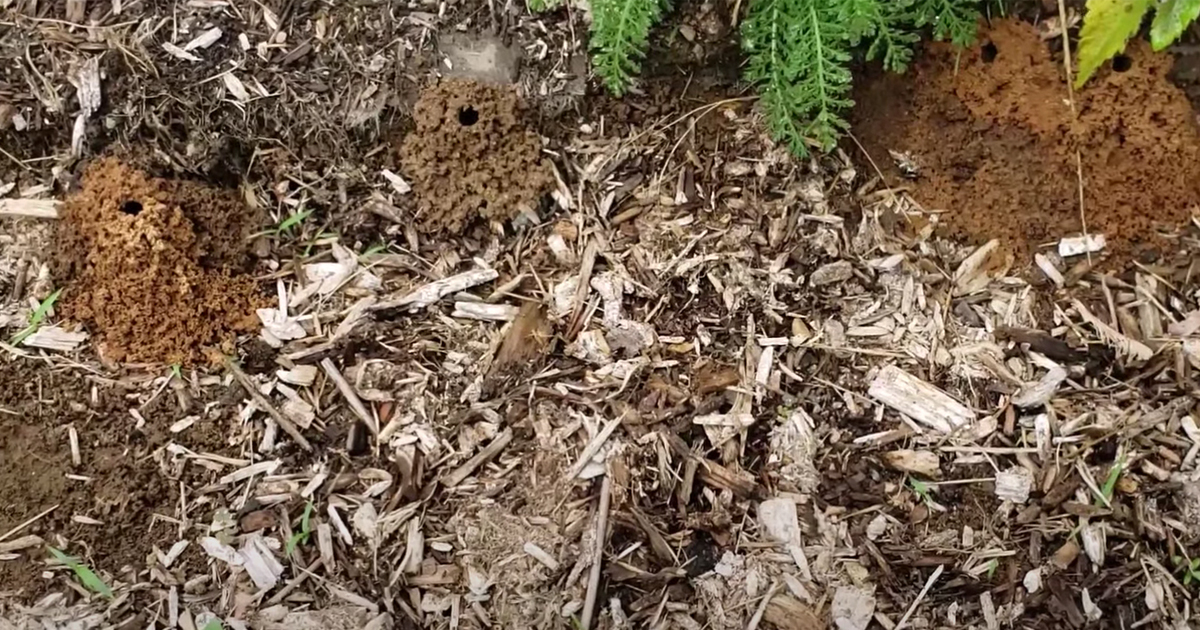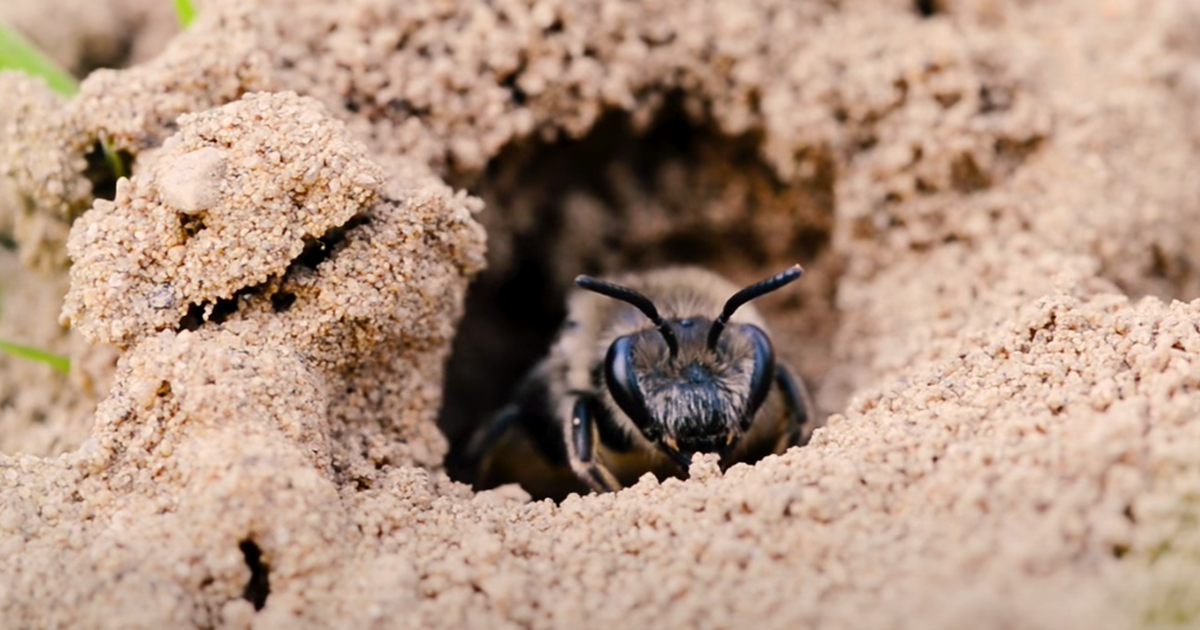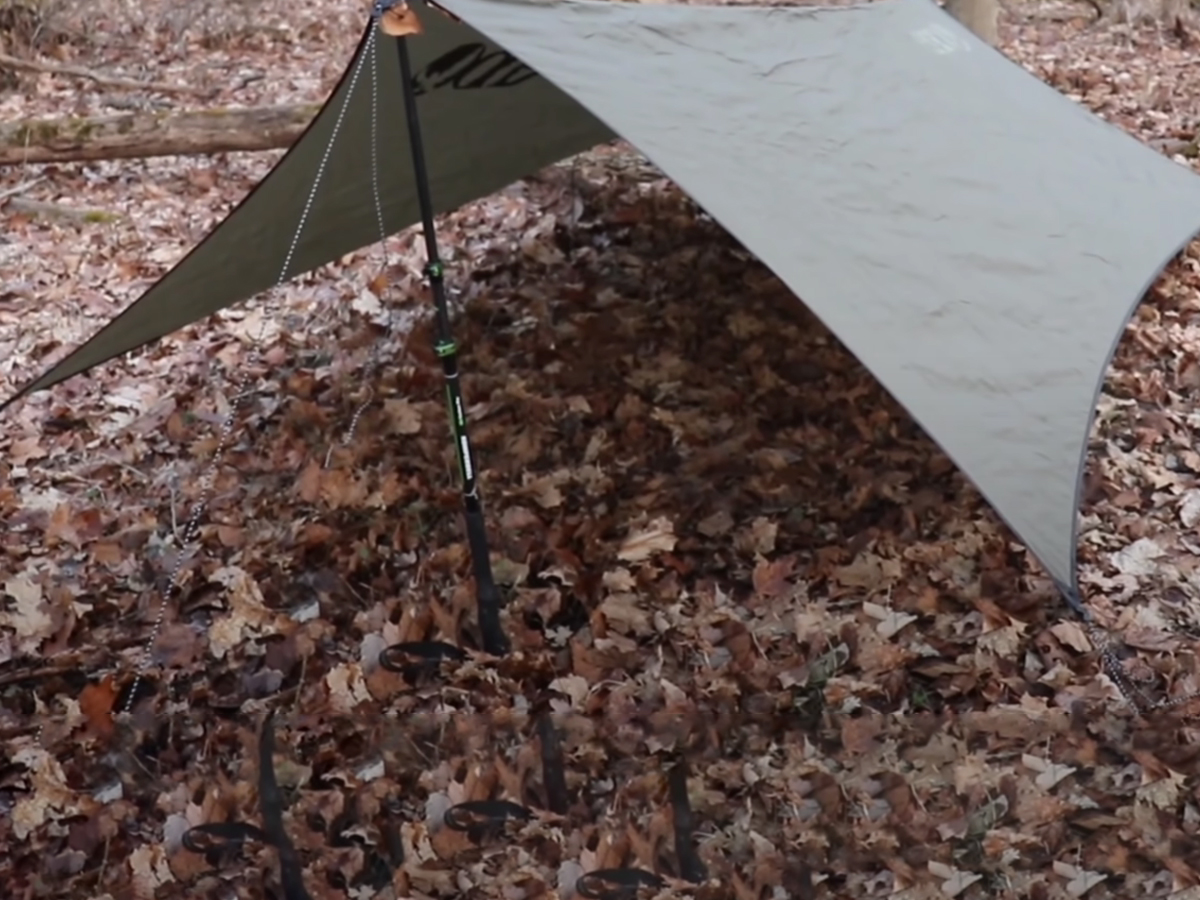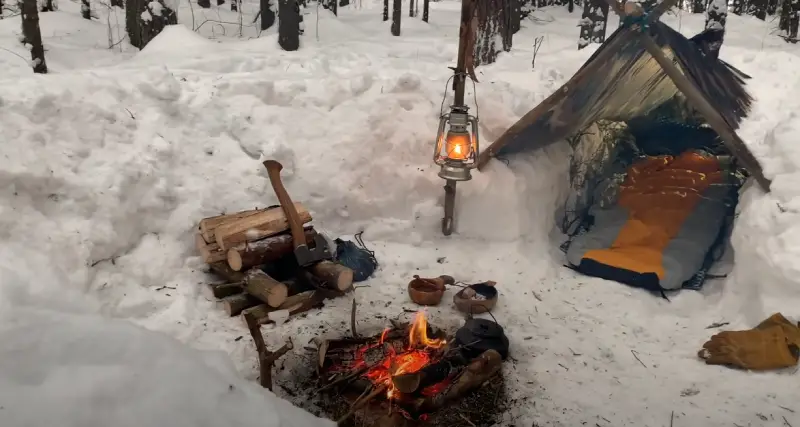Does Tent Camping Harm Ground Nesting Bees: 3 Impacts [Bad]
I love experiencing the beauty of nature with my little family, but I’ve always been worried about how our presence might impact the wildlife around us. Specifically, I’ve wondered about the effects of tent camping on ground-nesting bees.
I took my baby and pet on a tent camping trip, and I was worried about the impact on ground-nesting bees. After researching, I found that setting up tents on or near their nesting sites or disturbing the soil can harm these bees. It’s essential to be mindful of their delicate habitats to avoid causing harm to the bee populations.
I want to explore the complexities of tent camping and its effect on ground-nesting bees and share some practical tips for responsible camping practices.
Does Tent Camping Harm Ground Nesting Bees: Bad Impacts

I need to consider the potential consequences of my actions on the environment I visit. During our recent camping trip, I realized that our presence could negatively affect the ground-nesting bees in the area.
Risks Posed by Tent Camping
One of the risks I discovered was soil compaction. The weight of our camping equipment and the constant movement around the campsite could compress the soil, making it harder for the bees to dig their nests and find flowers for foraging. It made me realize the importance of knowing where to set up our camping gear.
Another risk I encountered was the potential destruction of bee nests. I noticed that tents and other equipment could unknowingly be placed on top of these nests, causing harm to the developing brood. It made me more cautious about where I pitched our tent and how I arranged our belongings.
I also learned about the impact on food sources for the bees. As campers, Imay unintentionally tramples on or picks nectar- and pollen-producing flowers. This reduces their food sources and hinders their ability to survive and reproduce. It made me appreciate the delicate balance of nature and the need to respect the environment.
I became aware of the increased exposure to predators for disturbed or displaced bees. When their nests are destroyed, these bees are more vulnerable to predators like birds and mammals that feed on their eggs and larvae. I realized the importance of preserving their habitats and minimizing our impact.
Through my experience as a traveling mother, I have come to understand the risks ground-nesting bees face during tent camping. It has made me more conscious of the impact of my actions on these incredible creatures and the importance of being responsible campers.
Human Presence Affects Bee Reproduction and Foraging
As a traveling mother with my baby and pet, I want to share my experience on the impact of human presence on bee reproduction and foraging habits. It’s fascinating to observe how ground-nesting bees react to our presence.
I noticed that the bees seemed cautious when I set up our tent. They sometimes delay or even abandon their nesting activities as if they sensed a potential threat. It’s understandable, as our presence can disrupt their natural rhythm.
Another interesting observation was how our presence affected their foraging patterns. I noticed that the bees would avoid flowers near our tents or campfires. This led to reduced pollination rates and a noticeable decrease in plant diversity around our camping area.
It’s incredible to see firsthand how our actions can influence these tiny creatures and their essential role in our ecosystem. Awareness of our impact on bee reproduction and foraging can help us make more conscious choices while enjoying the outdoors.
Camper’s Needs and Wildlife Conservation
I want to share my observations on balancing camper’s needs with wildlife conservation. It’s crucial as I have my baby and pet with me and care about minimizing our environmental impact. Here are steps I’ve taken to protect ground-nesting bees and other wildlife during our camping trips:
I always choose our campsite wisely. I look for established campsites away from known bee nesting areas and ensure I don’t disturb natural vegetation. This helps create a safe space for us and the wildlife around us.
I will be mindful of our surroundings and avoid stepping on nests. I’m extra cautious when walking or placing equipment, avoiding areas containing ground-nesting bee nests. It’s all about respecting their habitats.
I prefer using alternative light sources to minimize the attraction of insects, especially at night. Instead of keeping porch lights on, I use headlamps or flashlights. It helps us see better and reduces the chances of attracting unwanted visitors.
One of the most important things I do is leave no trace behind. I pack out all our trash and food scraps, ensuring I don’t leave anything behind that could attract pollinator predators. It’s a small but significant way of keeping the ecosystem balanced.
I take every opportunity to educate others. I share my knowledge with fellow campers and encourage them to practice responsible camping practices. Together, we Can make a difference in protecting wildlife and preserving the beauty of nature.
Ground Nesting Bees & Tent Camping: Minimizing Impact

I share my experience and tips on responsible camping practices to protect the environment and its inhabitants. I will focus on promoting ground-nesting bee awareness and choosing a bees-friendly campsite.
Promoting Ground-Nesting Bee Awareness
This is my story and the importance of bee conservation with fellow campers. It’s about enjoying nature and protecting the environment for future generations.
I learned how bees, especially ground-nesting bees, play a crucial role in pollination on our camping trip. These little creatures are responsible for our beautiful flowers and delicious fruits.
I made it a point to educate my fellow campers about the significance of bees and how our actions can impact them. I shared with them how ground-nesting bees are affected when their nests are disturbed or trampled upon. It was eye-opening for everyone to realize the impact of our footsteps on these tiny homes.
I encouraged everyone to adhere to the Leave-No-Trace (LNT) guidelines to reduce our impact on ground-nesting bees while camping. Isuck to designated trails and campsites, and avoid stepping on nests. I picked out all our trash and minimized our campfire impact.
Choosing a Bees-Friendly Campsite
I would like to share my experience with choosing a bee-friendly campsite. With my baby and pet by my side, I needed to minimize the environmental impact of camping on ground-nesting bees. Here’s what I learned:
When it came to selecting a suitable campsite, I made sure to stay away from known ground-nesting bee habitats. I didn’t want to disturb their natural habitat or put my family at risk. So, I avoided setting up our tent near areas with flowering plants, as these are potential bee habitats.
I looked for campsites with designated camping areas to support wildlife managers and environmental stewards. These areas were established with these experts to protect the bees and the other wildlife that calls the site home.
I could enjoy our camping trip while being mindful of the bees and the environment. It was a rewarding experience, knowing I was doing our part to protect these incredible creatures.
Conclusion
I am committed to consciously balancing our camping needs with ecosystem preservation and wildlife management. Ground-nesting bee conservation must play a significant role in our camping practices. We must remain mindful of our actions and their impact on these tiny but vital creatures.
By promoting awareness, educating fellow campers, and engaging in responsible camping practices, I can minimize the impact of our presence while still enjoying the beauty and wonder of camping in nature.
FAQs
What Is The Best Way to Protect Ground-Nesting Bees?
I find it beneficial to leave patches of grass or other low-growing plants intact to prevent erosion. I must avoid disturbing the soil in these areas because ground-nesting bees rely on stable soil for nesting.
Their young bees spend up to eleven months underground. Protecting ground-nesting bees from pesticides is crucial in supporting their population.


